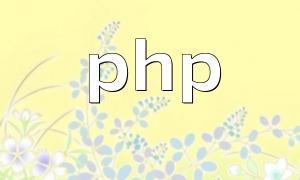Laravel Collections provide a powerful and elegant extension to PHP arrays, greatly simplifying data manipulation tasks. Using Collections, developers can perform complex data operations easily with concise, chainable methods.
Laravel Collections are an enhanced version of PHP arrays that allow object-oriented manipulation of collection data. They offer a rich set of user-friendly methods that make adding, removing, and modifying data more efficient and readable.
The most common way to create a collection in Laravel is through the collect() helper function. For example:
$collection = collect([1, 2, 3, 4, 5]);Mastering common collection methods increases the flexibility of data handling. Here are some core methods:
map(): Applies a callback to each item in the collection and returns a new collection.
filter(): Filters the collection based on a given condition.
reduce(): Reduces the collection to a single value, commonly used for sums or merges.
pluck(): Extracts a specific field from each item in the collection into a new collection.
Here’s how to use the map() method to square numbers in a collection:
$numbers = collect([1, 2, 3, 4, 5]);
$squared = $numbers->map(function ($number) {
return $number * $number;
});Laravel Collections support method chaining, allowing multiple data operations to be combined seamlessly, resulting in cleaner code:
$results = collect([1, 2, 3, 4, 5])
->filter(function ($value) {
return $value > 2;
})
->map(function ($value) {
return $value * 2;
});Whether processing database query results or API data, Laravel Collections greatly simplify code logic and improve readability. Skillful use of collection methods helps developers complete data handling tasks faster and more efficiently.
By practicing and applying collection techniques, you will enhance development efficiency and provide stable, elegant solutions for complex data operations.
As a key data handling tool within the Laravel framework, mastering Laravel Collections enables developers to write cleaner, more maintainable, and efficient code. Familiarity with various collection methods and chaining is essential for advancing Laravel development skills.








